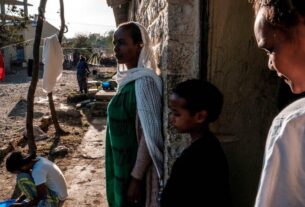This week, member states of the United Nations Human Rights Council in Geneva will vote on creating a mechanism to investigate alleged crimes by the parties to the conflict in Sudan. This would lay important groundwork for holding perpetrators to account.
In September, nearly 120 Sudanese, regional, and international organizations called for the UN’s top rights body to take this clearly warranted action in Sudan.
Since fighting erupted in the capital, Khartoum, in April 2023, both the Sudan Armed Forces and the Rapid Support Forces (RSF), an independent armed group, have repeatedly violated international humanitarian law, launching indiscriminate attacks in densely populated areas, destroying critical infrastructure, and blocking humanitarian assistance. Nearly five million people have been displaced.
In West Darfur, the RSF and allied Arab militias have targeted Massalit and other non-Arab communities, killing and injuring civilians – including fleeing women and children – and burned down towns. They have committed sexual and gender-based violence against women and girls, targeting them because of their ethnicity and at times for their activism. Reports of expanded recruitment and foreign military support point to a broader conflict.
We have seen such atrocities before in Sudan, particularly in Darfur, for which there was never any accountability. This has helped fuel the current violence and sent perpetrators the message that there will be no consequences for their actions.
This week, Human Rights Council members will have the opportunity to contribute to correcting course by supporting a resolution on Sudan that will create an independent mechanism to ensure atrocity crimes are investigated, vital evidence is preserved, and recommendations for accountability are made.
Establishing an investigatory body will not end abuses or deliver justice on its own. It is, however, a vital part of a desperately needed, robust international response. It could bolster and expand upon existing accountability efforts, including those being undertaken at the International Criminal Court and elsewhere. It would also offer an opportunity for the many Sudanese to have their stories heard.
Human Rights Council members have an opportunity – and a responsibility – to use their vote to send a message of deterrence to the warring parties and, importantly, of solidarity with Sudan’s people and hope to survivors, victims, and their families.
They should do precisely that.


